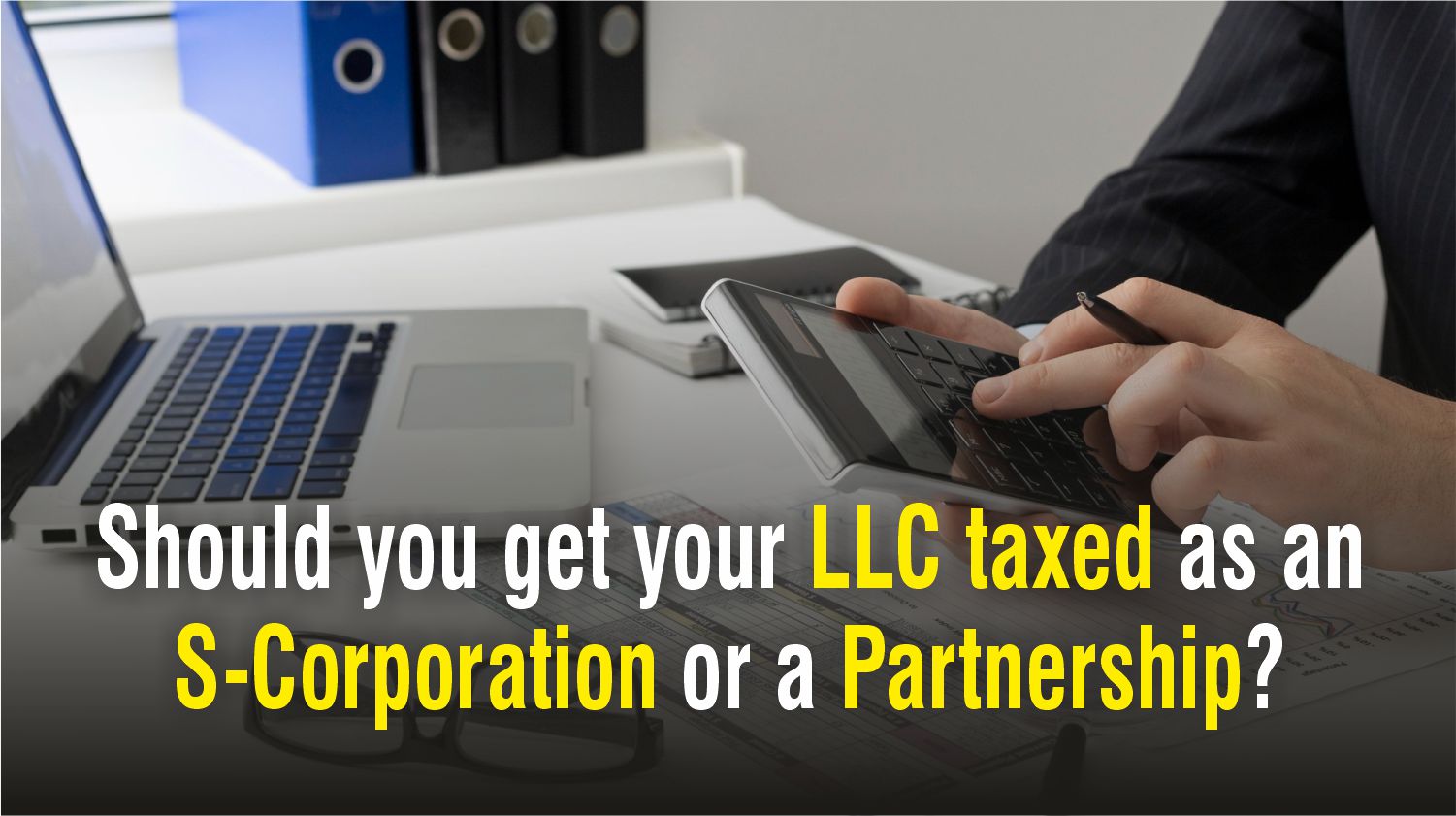Blogs on General Management

Should you get your LLC taxed as an S-Corporation or a Partnership?
by Vibrant Publishers on Aug 10 2023
While a Limited Liability Company (LLC) provides a hybrid structure between a corporation and a partnership, there are questions about the taxation structure to be adopted for this entity.
For an LLC, the available options for taxation are whether to opt for taxation as a partnership or an S-Corporation. Either way, one thing is certain - an LLC is a “pass-through” entity. This means that its income is passed on to its owners as their income and the income of the LLC can be reflected in the income tax returns of the owners.
Owners of LLCs are called “members” and the persons managing the operations of the LLC are known as managers. A member of an LLC can be an individual, a partnership, another LLC, a corporation, or a trust.
The default mode of taxation of an LLC is that of a sole proprietorship if it is a single-member LLC and a partnership if it is a multi-member LLC. Therefore, if you don’t do anything, your LLC will be taxed either as a sole proprietorship or as a partnership, which means that the income of the LLC will simply be declared on the proprietor or the share of profits will be declared on the partners’ tax returns.
What exactly is an S-Corporation?
S-Corporation is not an entity form. It is just a manner in which an entity can be taxed. So your entity would have to be either an LLC or a C-Corporation and then you can elect for it to be taxed as an S-Corporation.
What do you need to consider when making the decision?
In our case, we are considering if we should elect for our LLC to be taxed as an S-Corporation.
An important difference between when you are opting for your LLC to be taxed as a proprietorship or partnership and when you are opting for your LLC to be taxed as an S-Corporation is the manner in which the owner or the member’s income is taxed.
When an entity is taxed as a proprietorship or partnership, the income that the owner gets is treated as self-employment income. This is because the owner owns the business, and it’s not considered to be separate from the owner.
When an entity is taxed as an S-Corporation, any income that the owner receives from the business is considered to be the owner’s remuneration or salary, not self-employment income. However, this is if the owner is actively working for the business (you don’t get a salary if you don’t work!) and not just drawing passive income from the business.
And this is why, the way the taxes are applied on such income changes.
Further, you can split the income that you receive from the business into two categories:
Salaried income which will be subject to payroll taxes such as social security and medicare taxes. These are payable under the Federal Insurance Contributions Act (FICA).
Distributions, i.e. dividends from the business, which are not taxed in the same way as payroll or self-employment taxes, and therefore, these can be taxed on the normal income tax slabs.
By doing this, it is possible that your aggregate tax bill is reduced. However, any convenience comes with its own complexities.
First of all, there are some conditions that you need to fulfill if you wish to be taxed as an S-Corporation:
You cannot have more than one hundred members. That’s not so difficult to fulfill, considering that most LLCs are single-member LLCs.
However, another condition is that you cannot have anyone other than an individual as a member. So if you’re looking for a Corporation to be a member of an LLC (some real estate structures find this useful), then you cannot elect to be taxed as an S-Corporation.
Further, you need to have only residents as members. If any of your members are not residents of the US, you cannot elect to be taxed as an S-Corporation.
Secondly, being taxed as an S-Corporation requires some formalities to be fulfilled:
For a corporation to be taxed as an “S-Corporation”, they must submit Form 2553 with the IRS, provided that they are not financial institutions or insurance companies.
Therefore, it is clear that if an LLC meets the conditions for qualifying as an S-Corporation, there may be benefits in choosing to be taxed as an S-Corporation instead of the default mode of proprietorship or partnership. However, such decisions always need to be taken on a case-to-case basis, depending on the business and requirements of an LLC.
…
This blog is written by Komal Shah, author of the newly launched Business Law Essentials You Always Wanted To Know. She has written this book in the same simple-to-understand language as this blog and has covered a wide range of topics such as basic taxation regimes, employment laws, contract laws, intellectual property laws, data protection laws, etc.
Order this book from our website or Amazon if you are a law geek and want a comprehensible guide to learn about the laws in the US.
Also read:
Contract for Service: 5 Things You Need to Know
What is Entrepreneurship and how do you set up a successful business?
Follow These Tips to Get Started (And Succeed) As An Online Entrepreneur

